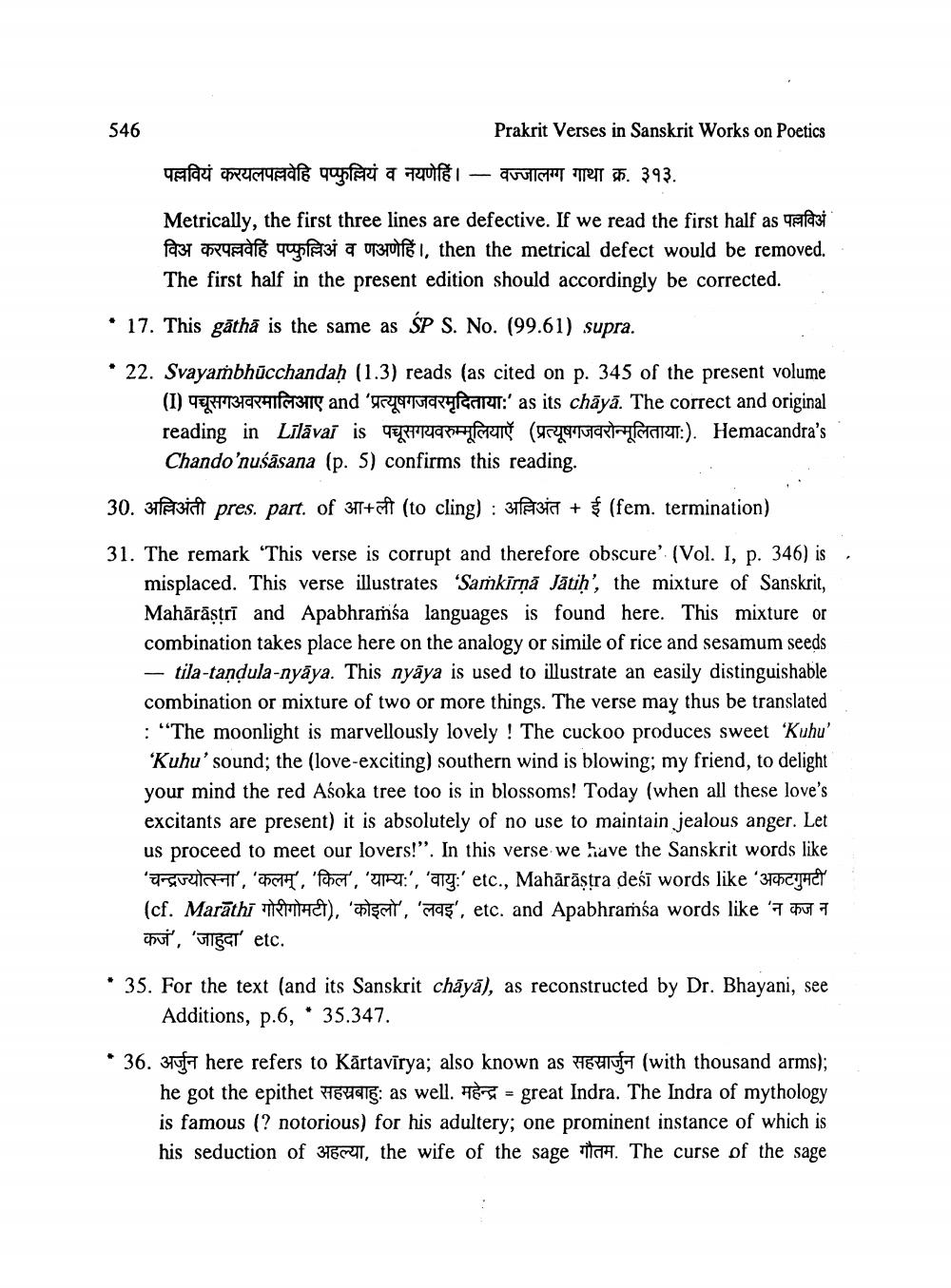________________
546
Prakrit Verses in Sanskrit Works on Poetics पल्लवियं करयलपल्लवेहि पप्फुल्लियं व नयणेहि। - वज्जालग्ग गाथा क्र. ३१३.
Metrically, the first three lines are defective. If we read the first half as aldzi विअ करपल्लवेहिं पप्फुल्लिअंव णअणेहि।, then the metrical defect would be removed. The first half in the present edition should accordingly be corrected.
* 17. This gātha is the same as ŚP S. No. (99.61) supra.
* 22. Svayambhūcchandaḥ (1.3) reads (as cited on p. 345 of the present volume
(I) पचसगअवरमालिआए and 'प्रत्यूषगजवरमुदिताया:' as its chāya. The correct and original reading in Lilavai is पचूसगयवरुम्मूलियाएँ (प्रत्यूषगजवरोन्मूलितायाः). Hemacandra's Chando'nuśāsana (p. 5) confirms this reading.
30. 31A3idit pres. part. of 31+
(to cling) : 313ia + $(fem. termination)
31. The remark 'This verse is corrupt and therefore obscure' (Vol. I, p. 346) is,
misplaced. This verse illustrates "Samkirņā Jātih', the mixture of Sanskrit, Mahārāștri and Apabhramsa languages is found here. This mixture or combination takes place here on the analogy or simile of rice and sesamum seeds - tila-tandula-nyāya. This nyāya is used to illustrate an easily distinguishable combination or mixture of two or more things. The verse may thus be translated : "The moonlight is marvellously lovely ! The cuckoo produces sweet Kuhu' Kuhu' sound; the (love-exciting) southern wind is blowing; my friend, to delight your mind the red Asoka tree too is in blossoms! Today (when all these love's excitants are present) it is absolutely of no use to maintain jealous anger. Let us proceed to meet our lovers!”. In this verse we have the Sanskrit words like 'GUUSHT, '', 'poet', 'JRI:', 'ary:' etc., Mahārāştra deśī words like '3700 YHCT (cf. Marathi गोरीगोमटी), 'कोइलो', 'लवई', etc. and Apabhramsa words like 'न कज न Tui, 'JIEGT etc.
* 35. For the text (and its Sanskrit chāyā), as reconstructed by Dr. Bhayani, see
Additions, p.6, * 35.347.
* 36. 370f4 here refers to Kārtavīrya; also known as Heyra (with thousand arms);
he got the epithet 16HCE: as well. Her = great Indra. The Indra of mythology is famous (? notorious) for his adultery; one prominent instance of which is his seduction of 3764T, the wife of the sage am. The curse of the sage




